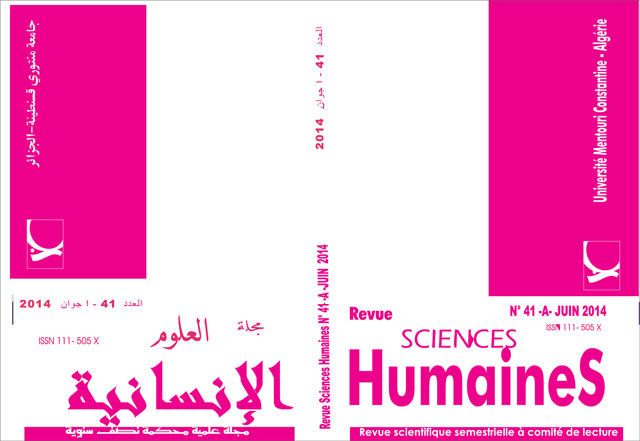Introducing Teaching Portfolios in Pre-service English Language Teacher Education in the Teachers’ Training School of Constantine
Abstract
This article reports on a research project that describes the experience of English language trainees with using teaching portfolios to report and present their learning/teaching experiences during the Practical Training Course (PTC). It aims to illustrate the process of the development of teaching portfolios as a reflective tool for the trainee’s learning/teaching aiming to replace the current training reports used at the Teachers’ Training School of Constantine (TTSC). A procedural study of how the trainees presented the materials and reflected upon them was carried out over a four-month period, as well as their perceptions about the portfolios. Findings from content analysis, reflections and the questionnaire reveal that the teaching portfolio would be a good alternative to report trainees’ learning/teaching experiences and a productive tool to promote reflection and career development.Downloads
References
Dewey, J. How We Think.Heath and Co,New York, 1933.
Schӧn, D. A.The Reflective Practitioner: How Professionals Think in Action. Basic Books New York,1983.
Longayroux, D., D. Beijaard, and N. Verloop. The portfolio as a tool for stimulating reflection by student teachers. Teaching and Teacher Education, Vol. 23,Nᵒ1 (2007), pp.147-162.
Hismanoglu, M.Effective professional development strategies of English language teachers. Procedia Social and BehavioralSciences,Vol. 2 (2010), pp. 990-995.
Darling, L. F. Portfolio as practice: The narratives of emerging teachers. Teaching and Teacher Education,Vol. 17 (2001), pp. 385-400.
Darling-Hammond, L. and J. Snyder. Authentic assessment of teaching in context. Teaching and Teacher Education,Vol. 16 (2000), pp. 523-545.
Loughran, J. and D. Corrigan. Teaching portfolios: A strategy for developing learning and teaching in preservice education. Teaching and Teacher Education, Vol. 11,Nᵒ6 (1995), pp. 565-577.
Lyons, N. Reflection in teaching: Can it be developmental? A portfolio perspective. Teacher Education Quarterly, Vol. 25, Nᵒ1 (1998), pp. 115-127.
Zeichner, K. and S. Wray. The teaching portfolio in US teacher education programs: What we know and what we need to know. Teaching and Teacher Education, Vol. 17(2001), pp. 613-621.
Wolf, K. and M. Dietz. Teaching portfolios: Purposes and possibilities. Teacher Education Quarterly, Vol. 25, Nᵒ 1 (1998), pp. 9-22.
Riggs, I. M. and R. A. Sandlin. Teaching portfolios for support of teachers’ professional growth. National Association of Secondary School Principals. NASSP Bulletin 84, 618; Proquest Education Journals (Oct. 2000), pp. 22-27.
Sarivan, L. The reflective teacher. Procedia Social and Behavioral Sciences, Vol. 11 (2011), pp. 195-199.
Bala, S. S. et al. Digital portfolio and professional development of language teachers. Procedia Social and Behavioral Sciences, Vol.66(2012), pp. 176-186.
Hauge, T. E. Portfolios and ICT as means of professional learning in teacher education. Studies in Educational Evaluation,Vol. 32 (2006), pp. 23-36.
Baris, M. F. and N. Tosun. E-portfolio in lifelong learning applications. Procedia Social and BehavioralSciences,Vol. 28 (2011), pp. 522-525.
Genc, Z. and H. Tinmaz. A reflection of preservice teachers on e-portfolio assessment. Procedia Social and BehavioralSciences,Vol. 9 (2010), pp. 1505-1508.
Gavori, E. and C. Sanchez. Teacher training in the European higher education area: A look at the American model. Procedia Social and BehavioralSciences,Vol. 15 (2011), pp. 3153-3157.
Richards, J. C. and T. S. C. Farrell. Professional Development for Language Teachers: Strategies for Teacher Learning. Cambridge U, Cambridge, 2005.
Foote, C. J. and P. J. Vermette. Teaching portfolio 101: Implementing the teaching portfolio in introductory courses. Journal of Instructional Psychology,Vol. 28,Nᵒ1 (2001), pp. 31-37.
Al-Issa, A. and A. Al-Bulushi. Training English language student teachers to become reflective teachers. Australian Journal of Teacher Education,Vol. 35,Nᵒ4 (2010), pp. 40-64.
Nichol, D., & Milligan, C. Rethinking technology -supported assessment practices in relation to seven principles of good feedback practice. In C. Bryan & K. Clegg (Eds.), Innovative assessment in higher education (pp. 64-77). Routledge, London, 2006.
Shulman, L. The paradox of teacher assessment. In Wilson, S. & Hutchings, P. (Eds.) The Wisdom of Practice: Essays on Teaching Learning and Learning to Teach. Jossey-Bass, San Francisco, 2004.
Okhremtchouk, I., P. Newell, & R. Rosa. Assessing pre-service teachers prior to certification: Perspectives on the Performance Assessment for California Teachers (PACT). Education Policy Analysis Archives,Vol. 21, Nᵒ 56 (2013), special issue. Retrieved Sept., 20, 2013 from http://epaa.asu.edu/ojs/article/view/1263.












